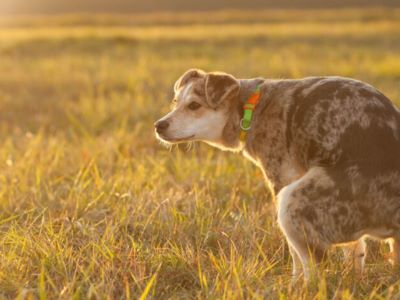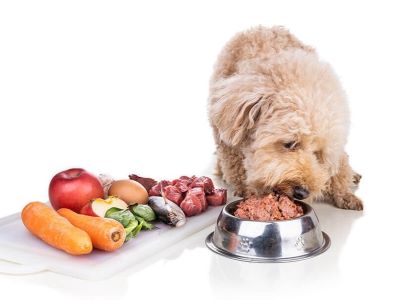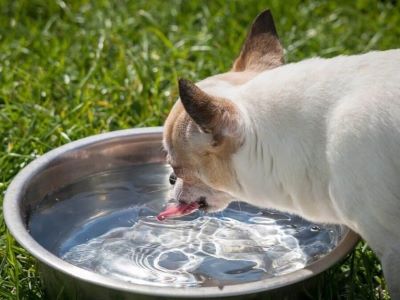Pet owners may be concerned about soft dog faeces since it may be a sign of underlying health problems. We’ll examine the causes of this frequent issue in this article and look at workable remedies for “How to Firm Up Dog Poop”. The digestive system of your dog is very important to their general health.
Are you curious how to make your dog’s faeces firmer? If your dog excretes soft or runny excrement, it may be the cause of concern. After all, one of the pillars of well-being is good digestive health. Nevertheless, the soft stool is a prevalent problem among our dog companions. You may relax knowing that you can fix this issue and restore your dog’s digestive health with minimal work.

Importance of Firm Stool
Your dog’s digestive tract is crucial to its overall health. Their digestive system is in charge of processing food, nutrient digestion, and waste elimination.
The digestive tract of a dog is significantly shorter than that of a human. A well-fed dog would usually complete his or her meal’s digestive process in one-third of the time needed for a human. Due to unique digestive enzymes in their saliva and stomachs, dogs can digest foods that humans cannot.
One of the finest measures of intestinal health is bowel movement. The stool should be firm and sturdy but not very harsh for your dog. It’s not a huge problem to sometimes have gentle motions. However, if it persists, it’s time to think about changing things.
What Makes My Dog’s Stools Soft?
It’s critical to understand the distinction between diarrhoea and soft stools. You can still pick up and get rid of the soft stools that still appear. Diarrhoea is hard to pick up and is more liquid than solid.
Viruses and infections are frequently the cause of diarrhoea. Diarrhoea should be reported to your veterinarian if it lasts longer than a few days. Conversely, soft stool is typically the product of a diet low in fibre and protein. However, dietary intolerances, drugs, or even stress may be the cause of the dog’s excessively soft stools.

The main cause of an excessively soft poop in a dog is overfeeding. A dog that has too much food is likely to have soft poop. Make sure the quantity your dog is eating is appropriate for their size and that it is appropriately measured by checking their weight.
Give them less food each day to make up for the reward, or stop feeding them treats or chews until their poop has firmed up. In addition to counting dental sticks as rewards, be mindful of any “scraps” your dog may be receiving from other family members!
Tips on How To Firm Up Dog Poop
You don’t need to give your dog medication or see the vet to help its digestive system; there are plenty of things you can do. These are the best methods for making your dog’s faeces firmer:
Dietary Adjustments and Appropriate Nutrition

Dogs require a balanced diet with enough digestive protein to have regular bowel movements. Your best option is a high-quality, meat-based diet. Choose turkey or chicken instead of beef if you can.
Limiting processed meals and preservatives as much as possible is also crucial. Select items made with white rice and steer clear of those containing maize or soy. To help your dog’s digestion even more, add some pumpkin [1] to their meal.
Add stay away from dog meals with a paté flavour! Remain with more natural substances and ensure that you only patronize businesses with clear nutritional labelling. Although it might seem apparent, it is crucial to understand exactly what is in the food goods you are buying.
Introduce Probiotics in their Diet
Dogs’ digestive systems, like those of humans, depend on the population of bacteria living in their stomachs. An unbalanced diet may encourage the growth of harmful bacteria in the stomach, which may result in diarrhoea or other digestive problems.
Probiotics help restore balance and promote healthy digestion by bringing beneficial bacteria into the gut. Please be aware that dogs’ digestive systems differ from human digestive systems. Probiotics intended for human use can exacerbate diarrhoea and loose stools in dogs.
Thus, look for a probiotic like FortiFlora that is designed especially for dogs. If you’re unsure, give your veterinarian’s office a call. They will assist you in determining the right products and dosages.
Adding Fiber to their Diet
Naturally, adding fibre meals is one of the finest ways to firm up your dog’s faeces. Fibre absorbs more moisture in the digestive tract, which helps your dog’s stools become more solid. Furthermore, fibre helps your dog feel fuller between meals, which may encourage them to eat fewer meals.
As we’ve already covered, pumpkin is great for digestion and has a high fibre content. White rice and oats are also fantastic options. If your dog often eats moist foods, you might want to try dry kibble[2].
You may certainly give your dog an uncooked carrot or other raw fruit to give him a little extra fibre. Vegetables from cans should be avoided since they usually have high salt content.
Drink More Water

There should always be fresh, clean drinking water available for your dog. Water consumption is necessary to keep the digestive system operating at its best. Dehydration may also be brought on by diarrhoea, so it’s crucial to constantly have access to clean drinking water.
Water also can attach itself to intestinal fibre, keeping your dog’s faeces hard and consistent, you make sure they aren’t drinking contaminated water, just make sure you clean their water dish at least a few times a week.
Common Mistakes To Avoid

Dogs may have soft stools as a result of several common mistakes. Making choices that are optimal for your pet’s health can be aided by your awareness of these possible risks. Following are some precautions that you may follow for your pet:
Avoid Dairy Products:
Take dairy out of your pet’s diet as it is one of the main causes of soft stool in dogs. Dogs simply cannot digest milk as well as humans, despite their love for it. The adjustment by itself might take care of all your problems.
If your young puppy is using a milk replacement product and their stools are becoming runny, you should consider switching to a lactose-free milk replacement product (like Lactol).
Avoid Fatty Foods:
Restricting your dog’s intake of fatty foods and opting for milder, blander options will also aid in firming up their bowel movements. Eat less fatty red meat and more poultry, fish, and turkey instead.
It might take some time for improvements to manifest, so be patient and follow this modest diet until you do see some noticeable improvements.
Remember that doggies find it extremely difficult to digest any food that has been fried in oil. Fast food and deep-fried foods are among the worst things you can give your dog in this circumstance.
Avoid Overfeeding:
Although it may seem paradoxical, feeding your dog less can help them. The digestive system needs a break from time to time. Remember that dogs arose in an environment similar to a “feast and famine.“
Generally speaking, your dog is overweight if you are unable to feel its ribs.
Thus, think about not feeding your dog for a full day. Alternatively, you could try giving your dog just one meal per day for a few days. Perhaps you should just start giving your dog fewer treats and smaller portions when it comes to mealtimes.
FAQs
How to Firm Up Dog Poop?
To help firm up their poop, try adding a few tablespoons of cooked carrot, sweet potato, or squash to their meal. It should be a fairly swift adjustment.
Can stress cause soft stools in dogs?
Stress can cause problems for a dog’s digestive system, which can result in soft tools. Reduce stress and find calming environments to enhance general health.
Is pumpkin safe for all dogs?
Yes, generally speaking. A secure and all-natural treatment for soft stools is pumpkin. But speak with your veterinarian, particularly if your dog already has medical issues.
How much water should a dog drink daily?
Every day, dogs need one ounce of water for every pound of body weight. Make sure they always have access to fresh water.
Are commercial dog foods reliable?
Different quality levels. To provide your dog with the nourishment they require, choose trustworthy brands with clear ingredient lists.
Conclusion
Proactive measures are necessary to maintain firm stools and protect your dog’s health. By understanding the root causes and implementing the necessary solutions, you can contribute to your pet’s optimal health and happiness, and figure out the answer to “How To Firm Up Dog Poop“.
With most dogs, you will inevitably have to assist them in controlling a period of diarrhoea or loose stools. If you observe their typical eliminations, you will be able to recognize “off” behaviour quickly. A straightforward diet adjustment will typically help your dog’s digestive issue and firm up their faeces. Don’t forget to see your veterinarian if your pet has persistent, frequent, or combined digestive issues with other medical issues.
Reference:
- Dog Constipation: How to Help Your Pet & When to See a Vet | WebMD
- Fresh vs Raw Dog Food vs Kibble | American Kennel Club



